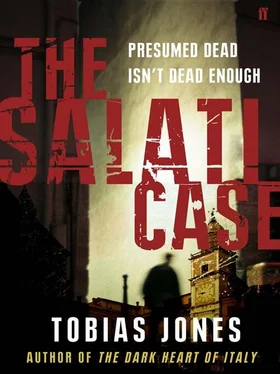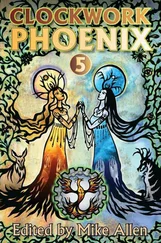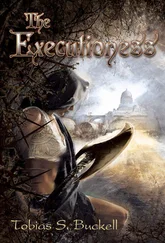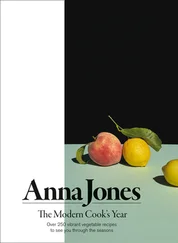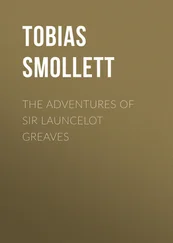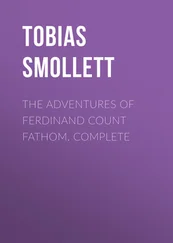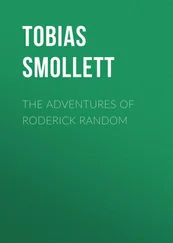‘And do people have to come in to make a payment or can they do it over the phone?’
‘They don’t have to come in, just as long as the money does,’ Mazzuli smiled sweetly.
‘All right, thanks.’ I got up to go, but Mazzuli stood up and blocked my way.
‘Hey, hey. We had a deal. I pass you information, you pass me. What is this you’re working on? I haven’t heard of any murder.’
‘Me neither. But the minute I do, you have my word, you’ll be the first person I call.’
‘So what’s this all about?’
‘The opposite of a murder, I expect. Someone’s impersonating a poor guy who’s died.’
‘I don’t get it.’
‘Neither do I.’
Mazzuli seemed satisfied with my confusion and smiled. As I walked out I saw Suzi passing a chip-and-pin machine to a mourner.
For some reason I decided not to go on the motorway to Rimini, but to drive the Via Emilia. It’s a strange road, so straight you could drive it with your knees. All along it are rectangular warehouses, depots and shops: furniture outlets, wholesale food suppliers, regional offices of some important acronym. They look like they’re all made of thin metal. Very few of them seem to have windows but they have huge forecourts for cars. It looks strangely soulless, all cuboid compared to the stone and marble extravagance of the centro storico .
The city has such a bizarre contrast between its historical centre and its modern suburbs. It goes from the sublime to the functional, from narrow to wide, from cobbles to asphalt, in the space of a couple of traffic lights. I suppose every old city is like that. It’s just that not many have as much history as this one, or seem so impatient to get away from it.
Fed up of traffic lights and pedestrians, I pulled on to the motorway after twenty miles. It was just as straight and boring. It ran between the Via Emilia and the new, high-speed train line between Paris and Rome. East and west, the road was the same: flat fields and crumbling villas, the occasional yard selling cranes or pallets. As the motorway cut through the outskirts of cities, I could see the tents and chickens of the gypsies and drop-outs.
I was thinking about the Anna di Pietro woman. If Riccardo was dead, she was his common-law widow. She must have given up on him long ago. She had married, Franchini had said. Their girl would be a teenager by now.
I came into Rimini on the ring road. It’s a place of wasted beauty in the low season. Long beaches to yourself and the litter. It used to be the place where the stars hung out in the 1950s, but they had left as soon as it had become popular in the 60s and 70s.
By now it looks like any other seaside town that has tried to make money as quickly as possible. It looks like Miami with less beach and more concrete. The grand old hotels have been turned into seedy nightclubs or knocked down to make way for car parks.
I found her road, Via dei Caduti, and parked outside the building. I found her surname and rang the buzzer.
‘Who is it?’ a female voice said.
‘I’m a private investigator…’ I trailed off. It always unnerves people and I let it sink in. ‘I’m looking into Riccardo Salati’s disappearance.’
‘Why?’
‘No one told you?’
‘Told me what?’
The surprise sounded genuine.
‘I would rather talk face to face.’
The line went dead and I took a step back from the citofono . Judging by the plush block it looked like Anna had gone up in the world. It was a long way from the caravan I had heard about. I wasn’t sure she would want to think about Riccardo, let alone talk about him to a stranger.
A minute later a petite woman came out of the front door. She looked overdone: the eyelashes had thick mascara and her lacquered hair looked like it could survive a gale. I guessed there must have been a fair amount of inner turmoil for her to want such solid hair, as if it could offer a bit of stability in a fickle world. As she walked towards the gate, she glanced left and right, at the balconies of the villas next door.
‘We can’t talk here,’ she said. ‘Let’s walk.’
‘What’s wrong with here?’
She looked irritated and lit a cigarette.
‘So no one told you?’ I asked.
‘Told me what?’ She was walking me away from her house.
‘Silvia Salati died on Friday.’
She stopped walking and looked straight at me. ‘I heard. Umberto called on Saturday morning. And I’m sorry,’ she said formally, as if she had to prove it. ‘I’m sorry to hear of anyone’s death. But she never liked me, and I didn’t exactly take a shine to her. She was a severe woman. Is that why you’re here, because she died?’
‘I’m here to find out what happened to Riccardo.’
‘Who hired you?’
‘She did.’
‘Posthumously?’
‘Right. I’ve got to satisfy the conditions of her will and ascertain,’ I paused, realising I was already sounding like Crespi, ‘what happened to Riccardo.’
‘You want to find out about Ricky?’ She gave a snort of derision. ‘I’ve heard that before. Ever since he went missing I’ve had the police, the press, the privates. None of it has made any difference.’
‘I’m sorry,’ I said, like it was a condolence. That’s what it was because I didn’t believe Riccardo was alive. I’ve seen enough of these cases to know that Riccardo had died within hours or days of his disappearance. The body might be lying around, but the soul was long gone.
‘Listen,’ I said, giving her the ‘ tu ’, ‘I doubt we’ll find Riccardo. And if we do, I doubt he’ll be living. But there’s an inheritance involved. I need to satisfy myself of certain facts before making recommendations to the executors of Silvia Salati’s will. You with me?’
She was looking at me now as she dropped her cigarette on to the pavement and scuffed it with her shoe. ‘So that’s why you’re here?’
‘I need to ascertain his legal status,’ I said.
‘It’s “missing”. Been that way for years.’
‘And why didn’t you ever apply for it to be changed? An absence that long is more than justification to initiate a “presumed dead” application.’
‘Makes no difference to me. Either way he’s not here, is he?’ She was looking at me, defying me to contradict her. ‘We weren’t married so it’s not as if I had something to gain from him being presumed dead, or presumed alive, or presumed anything.’
‘It makes a difference now,’ I said, holding her stare. ‘There’s money at stake and Elisabetta is Silvia’s granddaughter.’
She was shaking her head. ‘We don’t need her money.’ It didn’t seem like the years had chilled her anger.
‘Why didn’t you ever marry Riccardo?’ I asked, wanting to know the gripe between her and the old Salati woman.
She pulled out another cigarette and lit up. ‘You don’t waste time, do you?’
‘I’m coming to the party fourteen years late, I’m in a rush.’
She inhaled deeply and turned her face to blow away the smoke.
‘What is it exactly that you’re after?’ she asked. ‘Because I doubt you’ll ask me anything I haven’t already been asked, and I doubt I’ll be able to tell you anything more than what I told everyone else every time they came round here.’
‘Maybe not.’
‘Every time this story comes up, it throws my whole family into embarrassment. My husband, my daughter, myself. Ricky’s dead. If you can prove that I’ll thank you for it, I really will. Not because I didn’t love him, but because you’ll allow me to mourn him, and allow me to start a new life at last. Because Giovanni and I feel…’
‘He’s your new man?’
‘Sure.’ She took another drag on the cigarette. ‘Our lives are put on pause every time Ricky is mentioned. If he were dead and buried, it would be different. I’m sorry if that sounds callous, but that’s how it is.’
Читать дальше
